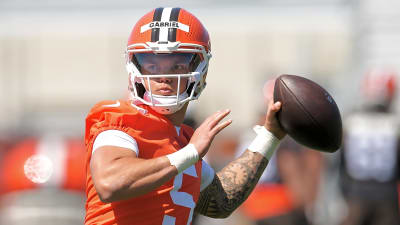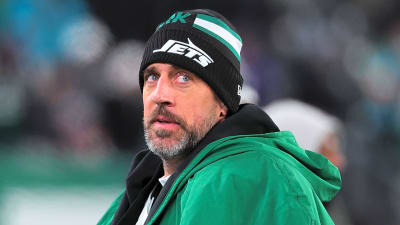
World No. 6 leads charge against tennis' new coaching rule
Starting with the 2025 season, all ATP and WTA events will allow coaches to guide their players verbally or via hand signals during matches.
When the International Tennis Federation (ITF) announced the new coaching rule on Monday, scores of current and former players reacted negatively, suggesting that certain players could get an unfair advantage. World No. 6 U.S. star Taylor Fritz led the charge.
Can we stop ruining the 1v1 mental/strategic aspect of the sport PLEASE https://t.co/bXVQFl0Fj9
— Taylor Fritz (@Taylor_Fritz97) October 21, 2024
Denis Shapovalov, a former Wimbledon semifinalist, was equally critical of the governing body for removing the sport's "mano a mano" aspect.
Not just as a tennis player but as a fan of this sport it’s sad to see this new off court coaching rule. Tennis is special because you are out there alone. Why are you trying to change the beauty of this game
— Denis Shapovalov (@denis_shapo) October 21, 2024
Per the ITF, coaching will be allowed "between points and at change of ends and set breaks, and at any other time (except during the playing of a point) permitted by the sanctioning body."
For both on- and off-court coaching between points, "all communication may be verbal (when the coach(es) and player(s) are at the same end of the court) or by hand signals (at any time when coaching is permitted) only."
Furthermore, all communication "must be brief (except during breaks in play) and discreet."
Coaching during matches has been discussed for years but became closer to reality when the ITF held trials during the 2022 season. In the past, both Novak Djokovic and Roger Federer spoke on the matter, with the latter hoping the rule change would be enforced only after his playing days as it's "not right" and "maybe unnecessary."
Djokovic was initially skeptical of the experiment but a little more open to the rule change during the 2023 U.S. Open.
"I would want to see, honestly, you know, a possibility of — I’m actually supportive of the on-court coaching or headset communication, whatever ways of getting more coaching. I think it’s good. I think it’s good for the audience. It’s good for the player," he said via the Tennis Gazette.
In previous years, some players have cried foul about players taking extended medical timeouts and possibly getting coached during such intervals. There was the infamous 2017 Australian Open when Federer took medical timeouts after losing the fourth set in both the semifinal against Stan Wawrinka and the final against Rafael Nadal. In the match against Wawrinka, he was off the court for eight minutes, which many felt drastically changed the momentum in his favor. Since those incidents, the medical timeout rule has been tightened, enforcing penalties on players for taking extended breaks.
More must-reads:
- Coco Gauff reveals what she did to overcome crowd noise in French Open semifinals
- Stanley Cup Final Game 2 takeaways: Panthers get even as Brad Marchand keeps building legacy
- The 'Wimbledon men's champions' quiz
Breaking News
Trending News
Customize Your Newsletter
 +
+
Get the latest news and rumors, customized to your favorite sports and teams. Emailed daily. Always free!







